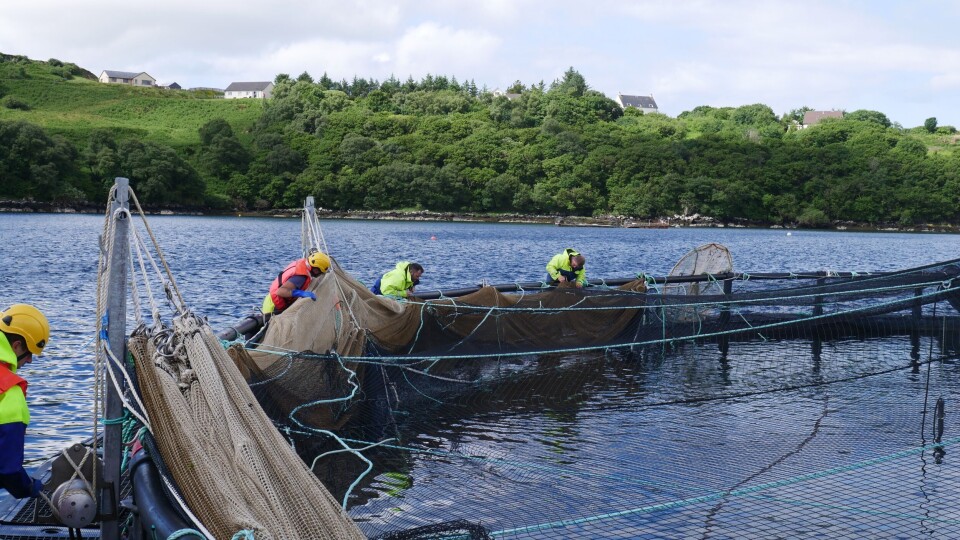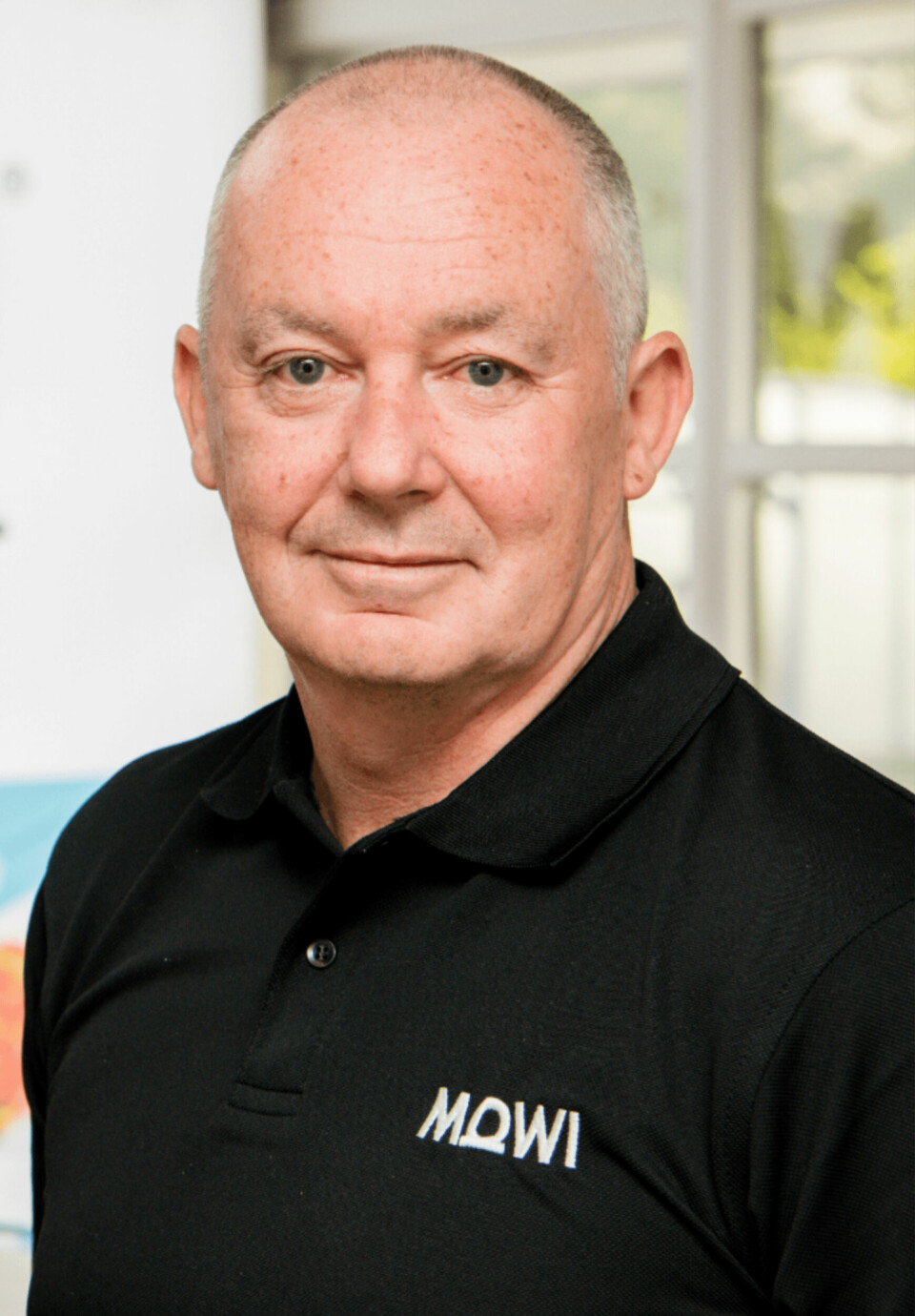
Mowi casts its environet wider
Mowi Scotland will have installed its circular environets in 90 cages across seven sites by the end of this year and plans to begin using some in Ireland in 2021.
The double-size nets remove the need for net washing, which Mowi believes can harm fish gill health by dislodging biofouling into the water.
One half of the environet is always out of the water, suspended on stanchions for a fortnight to allow wind and sun to dry and kill the biofouling which then falls harmlessly off the net.

‘Collaborative effort’
The system has been used on square cages for some years but has only recently been developed for circular cages thanks to the work of one of Mowi Scotland’s regional managers, David MacGillivray, and colleagues.
Mowi is now looking at patenting a part of the system which MacGillivray, known to his colleagues as “Bodger”, developed to allow farms technicians to change or “swim” the net manually, with minimal disturbance to the fish.
“It is great that Mowi is being considered for a patent specific to the circular environet concept,” MacGillivray told The Fish Site. “The invention was a collaborative effort by several colleagues at Mowi. While I came up with the initial idea, it required a lot of hard work from both Iain Frasers (Faggy and Floppy) to implement the concept and turn it into it a reality.
‘Ups and downs’
“It was a lot of fun to develop and we had a lot of ups and downs along the way. But it was well worth the effort as Mowi has invested almost £3 million in this project so far in Scotland where we will have the system installed on 90 cages across seven sites by the end of 2020.
“Given the success, there are plans to set up some of our Irish farm sites in 2021 with the system as well as developing an environet for a 160-metre cage.
“Maintaining good gill health for our fish is one of our top priorities and our results are clearly showing that the environet model – that allows for air and sunlight to clean nets – is much better for gill health rather than washing nets in situ.”























































